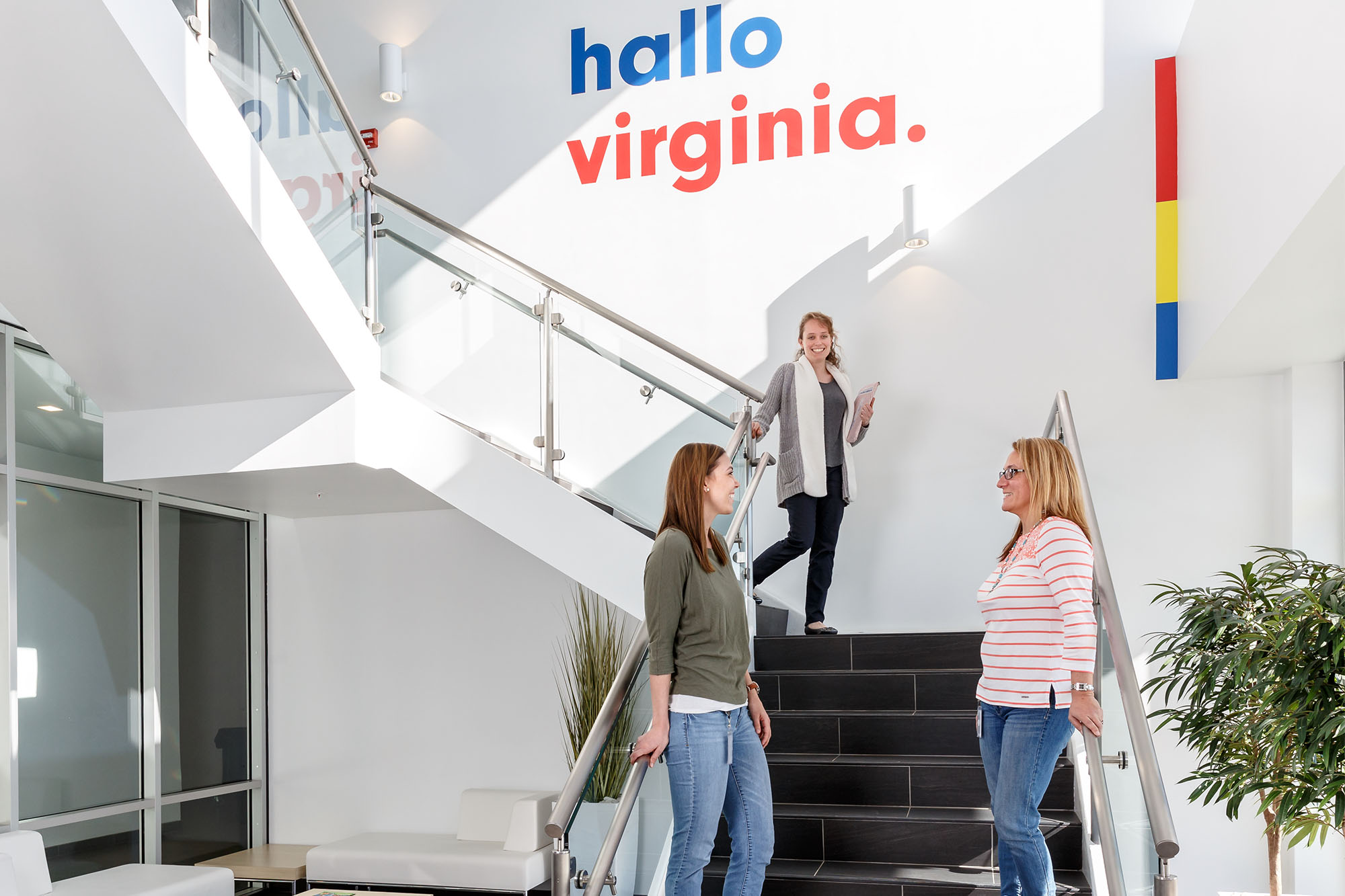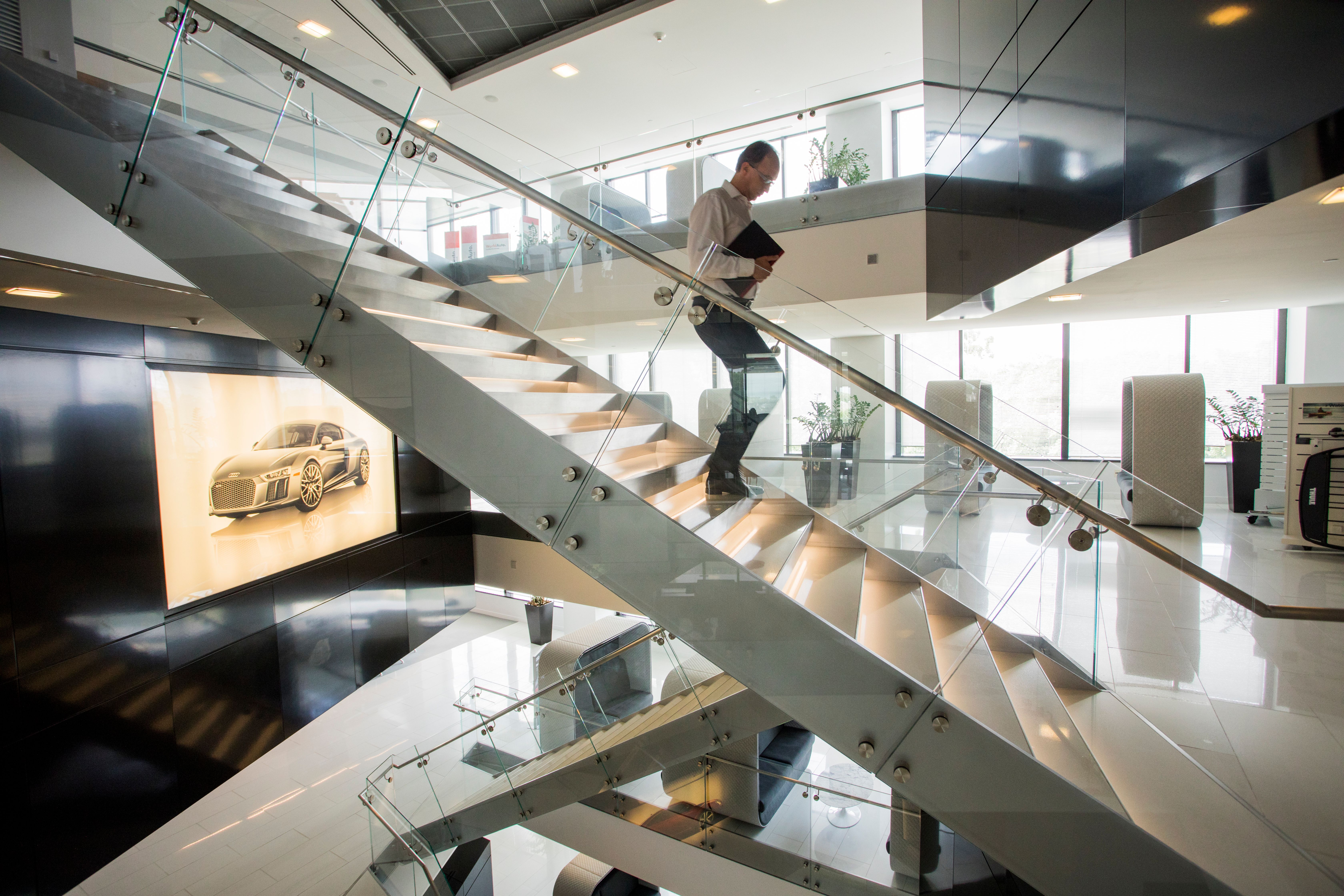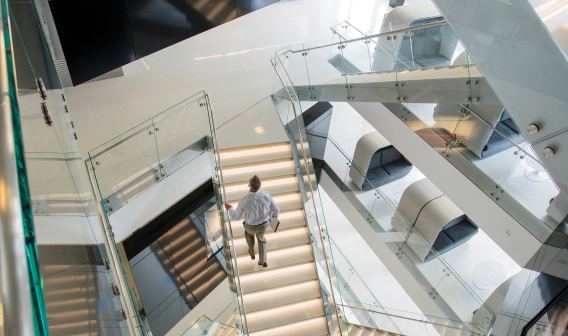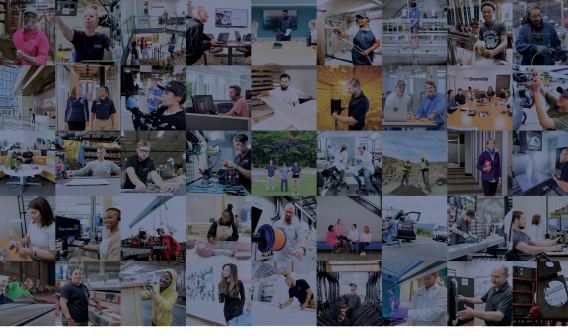Home Away From Home
International Companies Find Advantages in Locating U.S. Headquarters in Virginia
Foreign companies looking for a launching point to serve the U.S. and North American markets have many choices on where to plant their flag. Virginia has proven fruitful as that launching point for many of them.
More than 820 global companies have operations in Virginia, making up approximately 6.1% of total employment in the state, according to the Global Business Alliance, a membership organization made up of the largest international companies with operations in the United States.
One of those companies, Switzerland-based Nestlé, moved its U.S. headquarters from California to Arlington County in Northern Virginia in 2018. According to Dawn Striff, the company’s vice president, workplace solutions, “With 80% of Nestlé USA products sold east of the Mississippi and 75% of factories in the eastern half of the United States, the move to Virginia allowed the company to be closer to our consumers, customers, and U.S. business operations.”
That’s 80% of a considerable sales volume. In 2020, Nestlé product sales in the United States topped roughly $28 billion, making it the company’s largest market in the world.
Moving a company closer to its customer base and getting corporate functions closer to manufacturing facilities made economic sense. For Nestlé, Virginia provided a strategic location with easy access to major U.S. population centers — the ideal spot to attract talent from a wide geographic area in addition to the talented, diverse workforce already in place in Northern Virginia.
“When we thought about relocating our headquarters, it was really about finding the right location that gave us access to the right talent and the right kind of infrastructure we needed to succeed for the next 100 years, and that turned out to be Virginia,” Nestlé USA Chairman and CEO Steve Presley said. “What we found in Northern Virginia is the talent we need to win, and it’s exceeded our expectations.”
Framatome, a full-service supplier to nuclear power plants, had a similar plan in mind. A 2018 restructuring saw former parent company AREVA split into two companies, and Framatome, then headquartered in Charlotte, N.C., needed a new home base. It became clear that locating North American operations in Lynchburg made sense.
“Our location in the Mid-Atlantic area puts us in the middle of our eastern customer base. We can drive to all of the East Coast nuclear power plants in less than a day,” Framatome Vice President Denise Woernle said. “The East Coast time zone also facilitates communication with our European and West Coast colleagues.”
Connectivity with major markets has been a theme for some time with international companies that choose Virginia. Then-Volkswagen of America CEO Stefan Jacoby cited it as a reason for his company’s decision to locate its U.S. headquarters in Fairfax County in 2007, calling the location “convenient to vitally important markets for all our brands.” Last year, the company signed a 20-year lease to remain in Fairfax.
Furthering that connectivity, Virginia’s 16 commercial airports offer nonstop flights to more than 100 domestic and 50 international destinations.
Access to The Port of Virginia, the deepest port on the East Coast, is a draw for manufacturers like Germany-based power equipment company STIHL, which located its U.S. operations in Virginia Beach in 1974 and expanded its headquarters in 2018.
But another advantage a Virginia headquarters brings is just a car or Metro ride away: easy access to the decision-makers regulating a company’s industry in Washington, D.C.
For Nestlé, Striff says, “Being in Northern Virginia gives us unbeatable access to Washington, to help ensure we are fully involved in important conversations about bringing the best food and beverages to U.S. consumers.”
London-based industrial giant Rolls-Royce made a similar calculation when locating its U.S. headquarters in Fairfax County, close to regulators and government clients.
“The D.C. metro area is home to a wide range of Rolls-Royce stakeholders, including customers, trade associations, and policy makers,” said Rolls-Royce Director of Communications Donald Campbell. “Being located here helps us build and maintain many of the relationships that drive business, both domestically and globally.”
Campbell notes that what first attracted Rolls-Royce to Virginia was the proximity to talent and innovation pipelines that have led to “strong technology partnerships with colleges and universities in the state.”
Rolls-Royce maintains key relationships with the University of Virginia and Virginia Tech, which have served as part of the manufacturer’s global University Technology Centers research network since 2014. The company works closely with participating universities to expand its research and development efforts through joint research that can influence future Rolls-Royce products.
Framatome has made a similar commitment through its relationship with Central Virginia Community College in Lynchburg, working closely with the college to develop nuclear technologies programming to train technicians who support the global company’s work.
“We are fortunate in Virginia to have a large network of colleges and universities, and we find that hiring within the region strengthens our retention, particularly for early-career professionals,” Woernle said.
Nestlé USA has made Virginia a key part of its employee retention strategy. In fact, Striff notes that the perceived “employee experience” in Arlington became a major factor which tilted the relocation decision-making process to Virginia over alternative areas.
“Northern Virginia offers great quality of life for Nestlé employees and an incredible talent pipeline, both of which are keys to success for the business,” Striff says.
Chandler Ebeier, public relations manager of Lidl US, LLC, echoed that sentiment. “We want our employees to love where they work,” she said. “In addition, there are many transit options available to our employees, whether that be the Metro, by car, bus, or bike. Being within close proximity to a major airport also helps to facilitate work travel as needed.”
In 2015, after 40 years of growth in Europe, Lidl, a German discount grocery chain, selected Arlington County as the hub of its U.S. operations and located its first East Coast distribution center 60 miles south in Spotsylvania County near Fredericksburg. Like Nestlé, Lidl recognized Virginia as an accessible location from which to begin to broaden its U.S. footprint.
The ability to recruit a strong workforce also tipped the scales in favor of Virginia for Lidl, which benefits from Northern Virginia’s highly educated talent pool of nearly 28,000 corporate office professionals in the region. Finding a location that supports recruitment from a long-term talent pipeline — and that encourages retention of key team members — presents a significant advantage.
This focus on strong employee retention programs is one more way these international organizations reinvest in their communities. By supporting international investment with favorable policies, Virginia and its localities take steps toward a strong future.
“The state and local tax structures are favorable for our business and our employees,” Woernle said. “Legislation, regulation, and programs that allow us to grow and sustain our business, fairly compensate our employees, return a profit to our shareholders, and contribute to our communities are important to our presence in Virginia.”






